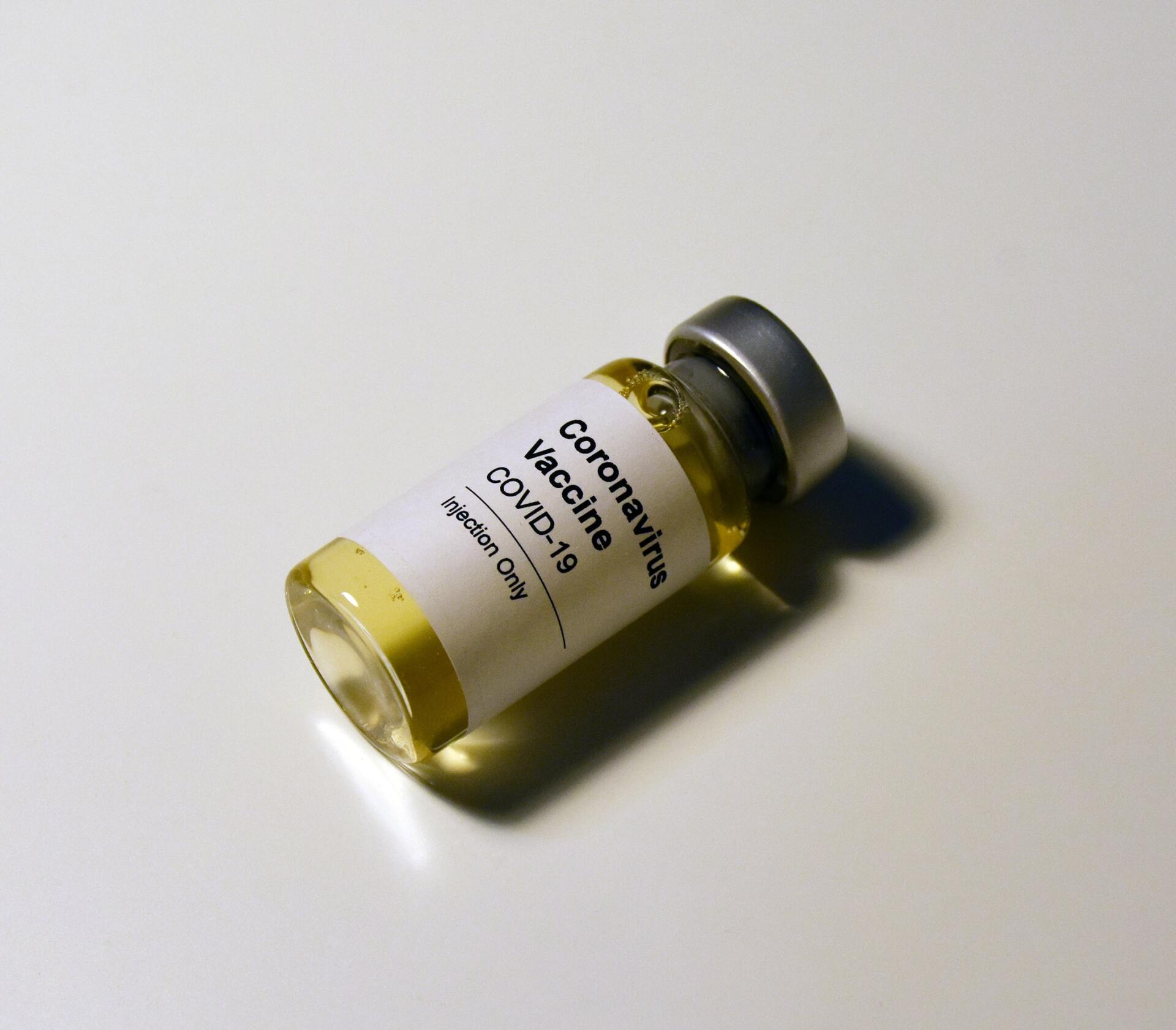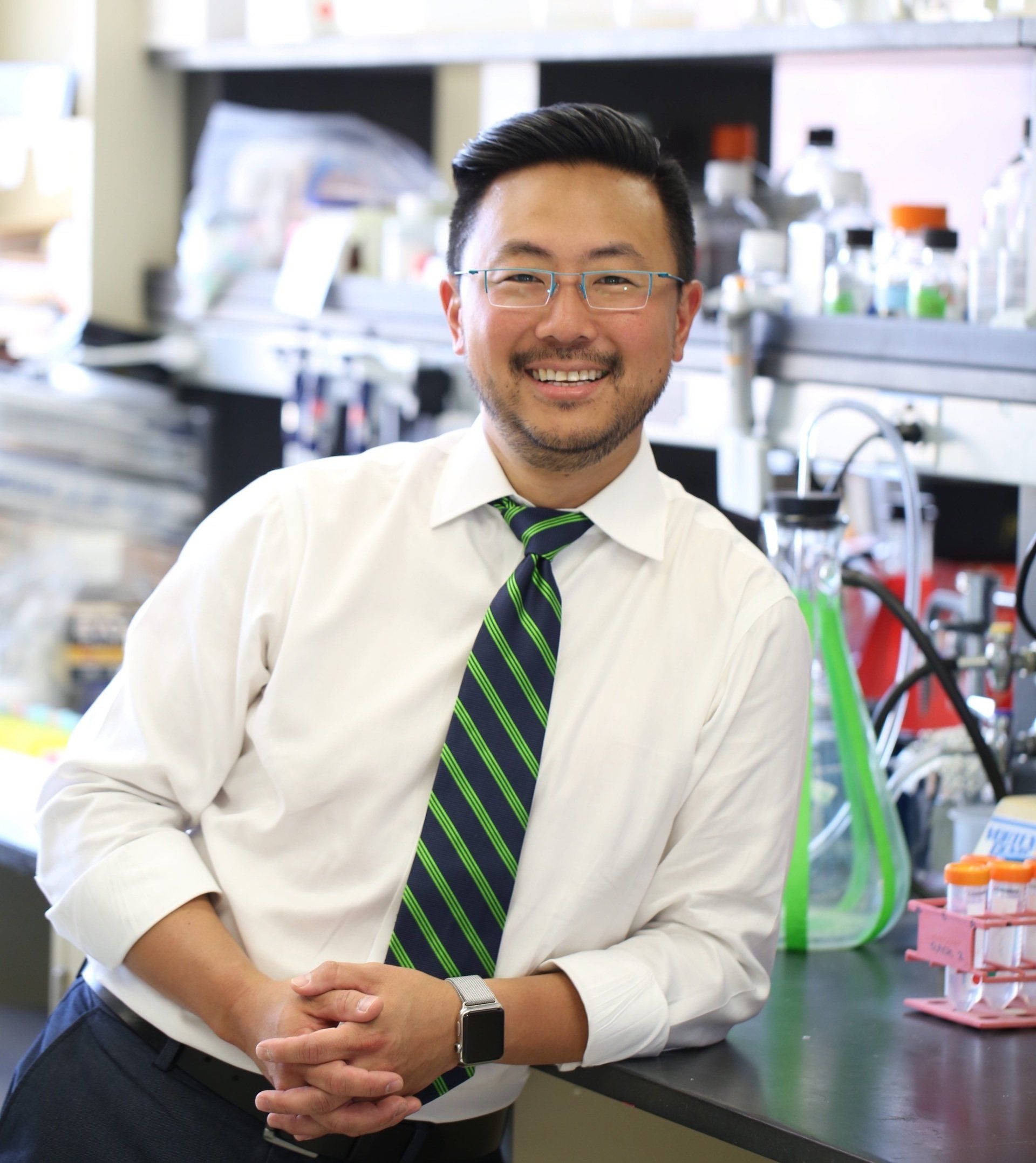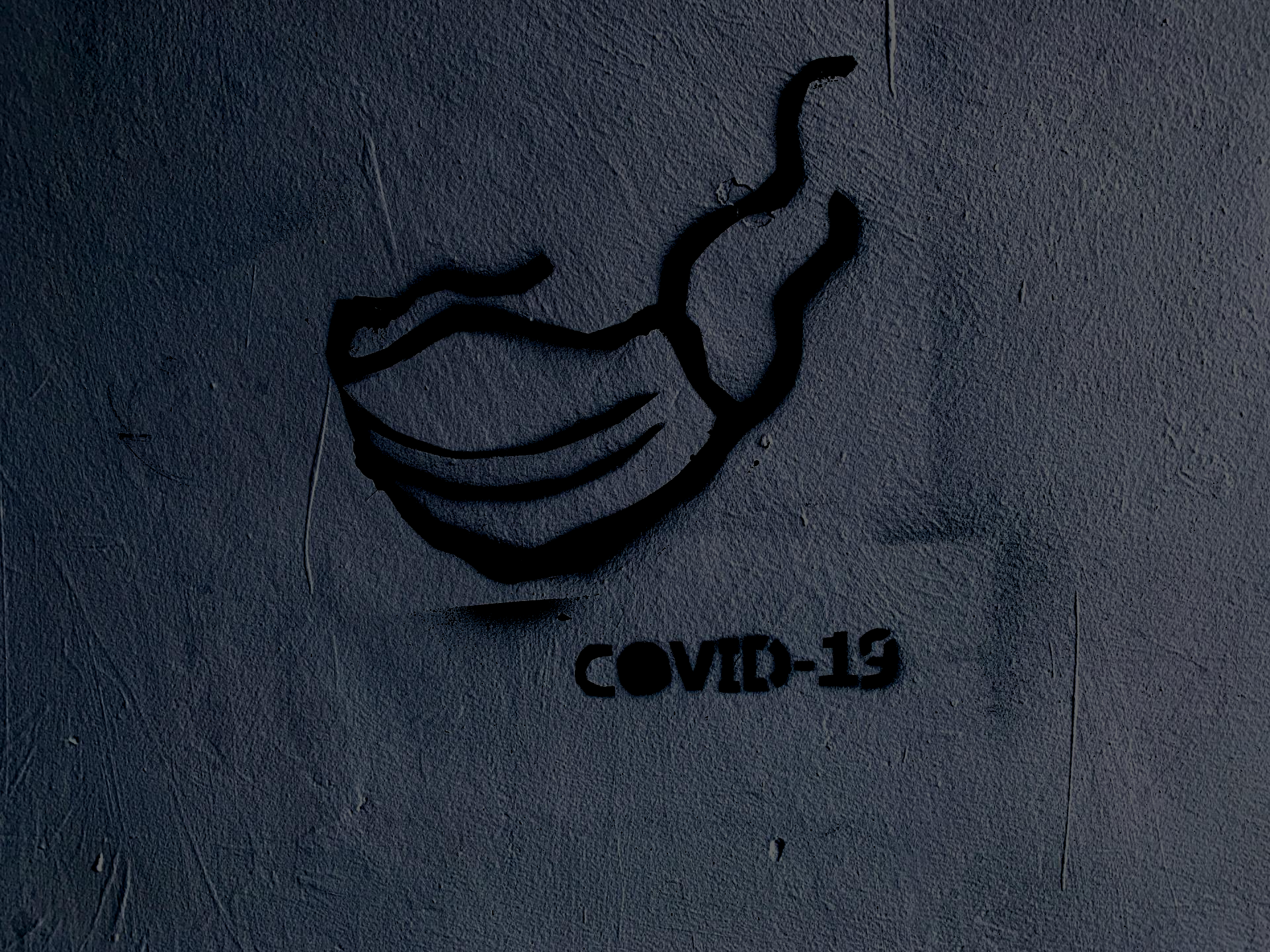- HOME
- ABOUT US
- WHAT IS AiARTHRITIS
- Diseases
- Rheumatoid Arthritis (RA)
- Psoriatic Arthritis (PsA)
- Systemic Lupus Erythematosus (SLE)
- Sjögren's Disease (SD)
- Axial Spondyloarthritis (AxSpA)
- Crohn's Disease
- Sarcoidosis
- Relapsing Polychondritis (RP)
- Systemic Sclerosis/Scleroderma (SSc)
- Behcet's Disease (BD)
- Palindromic Rheumatism (PR)
- VEXAS
- Antisynthetase Syndrome (ASS)
- Mixed Connective Tissue Disease
- JIA
- Familial Mediterranean Fever (FMF)
- HIDS (hyper-IgD syndrome, a mevalonate kinase deficiency)
- Cryopyrin-Associated Periodic Syndromes (CAPS) - Familial Cold Autoinflammatory Syndrome, Muckle-Wells Syndrome
- Schnitzler Syndrome
- Chronic Nonbacterial Osteomyelitis (CNO)/Chronic Recurrent Multifocal Osteomyelitis (CRMO)
- Still's Disease
- All Diseases
- Diseases
- OUR WORK
- RESOURCES & TOOLS
- GET INVOLVED
- CONTACT US
COVID-19 & AiArthritis Series:
Vaccine Questions & Mixed Messages
AiArthritis Voices 360 Full Episode 54
Air Date: January 24, 2021
This week join your patient co-hosts, Tiffany Westrich-Robertson, CEO of the International Foundation for Autoimmune and Autoinflammatory Arthritis, and Kelly Conway, co-founder of AiArthritis and author of the popular blog As My Joints Turn: My Autoimmune Soap Opera, as they sit down with Dr. Al Kim, Rheumatologist and Founder & Co-Director of the Lupus Clinic at the Washington University School of Medicine. Today’s episode will be a heart-to-heart conversation with Dr. Kim about questions, concerns, and mixed messages surrounding the COVID-19 vaccine.
Tiffany and Kelly, as people who live with AiArthritis diseases and participate in online patient communities, realized patients still had a lot of questions about the vaccine. How might their diseases and treatments affect its safety and efficacy? Should they even get it? They also discovered that not all rheumatologists were recommending the COVID-19 vaccine for patients, despite the general consensus that vaccination is suggested by groups like the American College of Rheumatology (ACR) and the European League Against Rheumatism (EULAR).
So is the vaccine safe for us? How will our treatments interfere with the safety and efficacy of the vaccine, if at all? And what can we do as a community if rheumatologists are providing inconsistent and misguided advice that patients then share with each other, leading to more confusion and questions? So we turned to an expert who understands the importance of the informed patient’s role in a shared decision-making model.
Dr. Kim and his colleagues are leading a study called COVID-19 Vaccine Responses in Patients with Autoimmune Diseases which seeks to examine the quantity and quality of immune responses generated to the vaccine by autoimmune patients, as well as the safety of the vaccine for those patients. He provides answers to all of our patient-generated questions and provides actionable advice you can use to make the best decision for your own care.
Disclaimer: This is meant to be informative, but not to provide medical advice. Every person living with AiArthritis diseases must make vaccination choices based on their self education then contact their rheumatologist or practicing physician and determine a solution together (shared-decision making). It is important you determine the best course of action for YOU, based on your own individual health situation.
LISTEN TO THE EPISODE THEN BE SURE TO TAKE A SEAT AT THE TABLE BY JOINING THE CONVERSATION!
(Scroll down the page to learn how!)
You can find, follow, and listen on Podbean, Spotify, Apple Podcast, or where ever you do podcasts. Please follow, rate, and subscribe to the show, then share it with someone. Be sure to check out our top-rated show on Feedspot!
Pull up your seat at the table
Now it's YOUR TURN to join the conversation!
What do you think about this episode?
We want to know what you think! By continuing the conversation with your opinions and perspectives - we all get a better understanding of the problems facing our community. Better yet, through these conversations we can start working and developing solutions.
We mean it when say 360. Not only do we want your input anytime and anywhere, but we also are eager to see where the conversation will take us. So please, "pull up a seat at the table" and let's start talking!
Email us at podcast@aiarthritis.org, message us on social media (find us by searching for @IFAiArthritis)
The AiArthritis Voices Program
Our AiArthritis Voices 360 Talk Show is just a piece of larger program - the AiArthritis Voices Program.
AiArthritis Voices is our program where people living with AiArthritis diseases and other stakeholders who we need 'at the table' to solve problems that impact education, advocacy, and research sign up to have a voice in our initiatives.
If you want to get more involved, and see more of the opportunities we have for you (and all stakeholders) please check out the AiArthritis Voices Program. Unite with others around the world to talk, learn, and connect.
Show Notes:
Questions bolded were submitted by our patient community. To read all submitted questions and answers, and to submit YOUR question, visit our Vaccination page.
00:53 - Tiffany welcomes listeners.
01:20 - Tiffany welcomes her rheumatologist, Dr. Alfred Kim and fellow patient co-host, Kelly.
02:00 - Today’s episode is about the COVID-19 vaccine and AiArthritis patients.
02:17 - Patients are sharing many differing pieces of information - not all of it accurate or clear - about the safety and efficacy of the available COVID-19 vaccines, so our organization decided to put together this episode, and the information will be added as an extension to our existing website @ aiarthritis.org/covid19 - subpage Vaccines. We will be constantly updating this information as more resources become available.
03:44 - Dr. Kim is an adult rheumatologist on the faculty at Washington University School of Medicine, as well as the founder and co-director of the Lupus Clinic at Washington University.
04:34 - Kelly is a co-founder of AiArthritis, as well as a patient living with Rheumatoid Arthritis and the author of the blog “As My Joints Turn: My Autoimmune Soap Opera.”
05:42 - Patients will always talk to other patients when making decisions about their own care, so the widespread sharing of misinformation about the COVID vaccine, as well as patient fears and concerns about the effect the vaccine could have on their disease, should be addressed so that all members of the AiArthritis patient community can make the best decision for their individual care.
07:05 - Dr. Kim, can you give us some general background information on vaccines?
07:11 - According to Dr. Kim, vaccines represent the most important modern medical advancement.
07:55 - After the immune system fights off a pathogen, it creates a memory response of the disease and the best way to kill it. Vaccines leverage this function of the immune system to protect patients from specific diseases.
09:03 - Is the COVID-19 vaccine a live virus vaccine?
09:12 - There are four basic types of vaccines: live attenuated (which are not generally recommended for patients on immunosuppressant medications), inactivated, subunit, and toxoid vaccines.
13:03 - Inactivated, subunit, and toxoid vaccines are all safe for patients on immunosuppressive medications.
16:05 - Some patients have already made a decision without accurate information about the vaccine or based on either misinformation about the virus itself or poorly informed advice from their doctor.
16:50 - People only know what they know, but it’s dangerous when they don’t know what they don’t know because then they start acting thinking they have complete knowledge of a situation.
17:07 - “This is a real problem in my mind that there are doctors saying that [the vaccine is] too new.” This science is not new. It has been used for decades. Dr. Kim will elaborate on this point later.
19:30 - The COVID-19 vaccine is not “FDA approved,” but it does have an Emergency Use Authorization from the United States Food and Drug Administration, which effectively does the same thing.
20:10 - Kelly lost her father and uncle to COVID-19 in November and December of 2020, which influenced her decision to get the vaccine as soon as possible.
22:53 - Some patients have even received conflicting advice from different doctors they see, making it very difficult for anyone to make an informed decision.
24:10 - Physicians - like everyone - don’t know what they don’t know.
24:15 - The technology used in the COVID-19 vaccine is new for humans, but it has been used in animals for decades. People who say it is “new” are uninformed, and some doctors are making recommendations to patients based on misunderstandings.
25:21 - Dr. Kim’s faculty is trying to make sure that all doctors in their region understand that every rheumatologist should be offering the COVID-19 vaccine to all of their patients.
26:00 - How is the vaccine going to impact rheumatology patients? Will it cause patients to flare? Will it activate AiArthritis diseases that may be in remission or well managed? Could AiArthritis patients experience significant negative impacts as a result of taking the vaccine?
27:37 - The honest response is: most likely it won’t, but nobody can be sure on an individual level because studies are looking at population level statistics
28:09 - There are significant potential benefits to AiArthritis patients because we know that COVID-19 impacts rheumatic patients more severely than the general patient population.
28:35 - It is possible that patients may experience a rheumatic disease flare for up to a month after receiving the vaccine.
30:10 - The vast majority of rheumatic disease patients, regardless of their medication, will be fine to receive the vaccine and will not experience a disease flare or increased incidence of adverse events compared to the general patient population.
31:56 - If patients have a history of adverse reactions to biologics or other medications, should they be concerned about getting the COVID-19 vaccine?
32:27 - Because the components of the vaccine are very different than those used in biologics or other medications, these are unrelated situations. The likelihood of them having another reaction is very low.
34:36 - Should AiArthritis patients discontinue biologics or DMARDs before or after taking the vaccine to optimize the efficacy of the vaccine?
38:00 - Dr. Kim is advising his patients to continue their medications and receive the COVID-19 vaccine. Patients on Rituximab should assume that their vaccine response will be reduced and deal with that separately.
41:27 - One problem highlighted by the COVID-19 pandemic has been the need for a method of disseminating actionable and trusted information to physicians and patients in rapidly changing situations.
44:58 - Is it true that AiArthritis patients are likely to have reduced antibody responses to the COVID-19 vaccine due to immune suppression? Or that our medications will impact the effectiveness of the vaccine?
45:30 - It is possible that some patients on a few medications (specifically rituximab/Rituxin, methotrexate, and Abatacept/Orencia) may have reduced antibodies, but it is not clear that this will compromise the effectiveness of the actual vaccine.
47:17 - Dr. Kim and his colleagues are leading a study called COVID-19 Vaccine Responses in Patients with Autoimmune Diseases which seeks to examine the quantity and quality of immune responses generated to the vaccine by autoimmune patients, as well as the safety of the vaccine for those patients.
48:09 - The study will also look at how immune responses to the vaccine evolve over time and how immunosuppression impacts long term effects.
49:34 - There is a theoretical risk that patients on immunosuppressants may not be protected to new mutant strains of SARS-CoV-2, so the study will also seek to address this concern.
51:31 - Dr. Kim is hoping to be able to report early results of the study within a month and more detailed results possibly as early as Summer of 2021.
53:41 - Which COVID-19 vaccine should I choose?
53:59 - The Moderna and Pfizer vaccines are very similar, and patients should get whichever version they can access.
54:35 - There was a theoretical risk that the vaccine could have triggered flares in Lupus patients, but the stability changes made to the vaccine coincidentally made the RNA in the vaccine significantly less inflammatory. Lupus patients are now advised to get the vaccine if they can.
58:56 - Bottom line: Should I take this vaccine?
59:22 - The vast majority of rheumatic patients - regardless of medications - will likely have a positive response to the COVID vaccine with minimal issues concerning safety or flares.
59:42 - As previously noted, patients on rituximab/Rituxin, methotrexate, and Abatacept/Orencia may be the exception with regard to vaccine efficacy, but it is still a safe option for them that could convey some protection from COVID-19.
1:00:00 - Dr. Kim would like to see all rheumatic patients get the vaccine to protect them from the potential for severe impacts of COVID infection.
1:00:54 - According to Dr. Fauci, we will be able to relax public health measures (like wearing masks) when 70-80% of the US population has been vaccinated. Until then, everyone should continue taking precautions to avoid spreading the COVID-19 virus even if you have been vaccinated.
1:01:12 - Will I need another COVID vaccine next year?
1:01:25 - Dr. Kim will reach out to a colleague for an answer on this and update us. Follow our website @ aiarthritis.org/covid19 for these updates. Dr. Kim’s best guess is that the vaccine will not need to be re-administered every year because the virus does not mutate as fast as influenza (which does need to be done annually), but boosters may need to be redone every few years.
1:03:23 - This vaccine technology was already in place and was easily adapted, and the vaccines are relatively easy to make. Hopefully this information helps allay fears from people who were concerned that the vaccine was made “too quickly.”
1:03:48 - Tiffany thanks listeners for joining us today.
1:04:34 - If you have additional questions, email us @ podcast@aiarthritis.org or visit us on the web @ aiarthritis.org/covid19
1:04:55 - If you are a person living with these diseases or the parent of a juvenile patient, go to aiarthritisvoices.org and sign up to join our online community space where we will talk more about COVID-19 and all our other projects and events.
1:05:12 - If you love the show, please give us a rating and subscribe wherever you listen to podcasts.
Patient Voices and All Other Stakeholders - Join our AiArthritis Voices Program and Connect to Opportunities to Have Your Voice Counted!
If you are a patient, a parent of a juvenile patient, or any other stakeholder (doctor, nurse, researcher, industry representative, or other health services person) - are you ready to join the conversation? It's your turn to pull up a seat. Join our new AiArthritis Voices program, where people living with AiArthritis diseases and other stakeholders who we need 'at the table' to solve problems that impact education, advocacy, and research sign up to have a voice in our initiatives. By signing up, you’ll get notified of opportunities to be more involved with this show - including submitting post-episode comments and gaining insider information on future show topics. Patients and all other stakeholders are encouraged to join so we can match you with opportunities to pull up a seat and TOGETHER - as equals - solve the problems of today and tomorrow.
AiArthritis Voices 360 is produced by the International Foundation for Autoimmune and Autoinflammatory Arthritis. Visit us on the web at www.aiarthritis.org/talkshow. Find us on Twitter, Instagram, TikTok, or Facebook (@ifAiArthritis) or email us (podcast@aiarthritis.org).
Be sure to check out our top-rated show on Feedspot!
Learn more about Dr. Kim's research in this report published by our friends at CreakyJoints: Researchers Are Starting to Study the COVID-19 Vaccine in Autoimmune and Immunocompromised Patients
Your Co-Hosts & Guests: Who is currently at the table?
Tiffany Westrich-Robertson
Tiffany is the CEO at International Foundation for AiArthritis and uses her professional expertise in mind-mapping and problem solving to help others, like her, who live with AiArthritis diseases work in unison to identify and solve unresolved community issues. For the last several years, she has continued her education in research, including becoming a professional focus group moderator, and translated this experience at our organization to develop award-winning, innovative projects that are taking patient engagement to next levels.
Tiffany has served on several advisory boards, including those to advance patient voices in policy, clinical trials, and precision medicine. In addition to reviewing grants at PCORI and for the Department of Defense, she was the sole patient grant reviewer for the National Institute of Arthritis and Musculoskeletal and Skin diseases from 2015-2018. She currently participates as a Patient Research Partner for OMERACT (Outcome Measures in Rheumatology), co-leads our organizations' international effort to advance patient voices in rheumatology research (the ACTion Council) and has dedicated her professional career to developing other patients to utilize their voices to impact the future of millions.
Episode Guest
Dr. Kim is an Assistant Professor of Medicine and of Pathology & Immunology at Washington University School of Medicine. He also founded and directs the Washington University Lupus Clinic. Dr. Kim’s research group is focused on addressing the unmet needs of human systemic lupus erythematosus (SLE), including understanding and leveraging the biomarker potential of complement activation products, testing novel noninvasive imaging platforms such as photo acoustics to detect lupus nephritis, understanding the relationship between sleep quality and lupus activity, and restoring eroded social support in patients with SLE.
Twitter: @alhkim
Love the show? Help us make sure we stay on the air by making a donation.
Your contribution helps us continue the work we do every day to improve the lives of millions worldwide.
Sign up for our newsletters
International Foundation for AiArthritis
6605 Nottingham Ave.
St. Louis, MO 63109-2661
Toll Free: 1-877-609-4226
Text: 1-314-282-7214
Copyright 2024. All rights reserved. Information on this site is intended for informational purposes only Our foundation does not engage in the practice of medicine. Please consult a physician to obtain personal healthcare and treatment options. 501(c) 3 Nonprofit Tax ID: 27-1214308.













